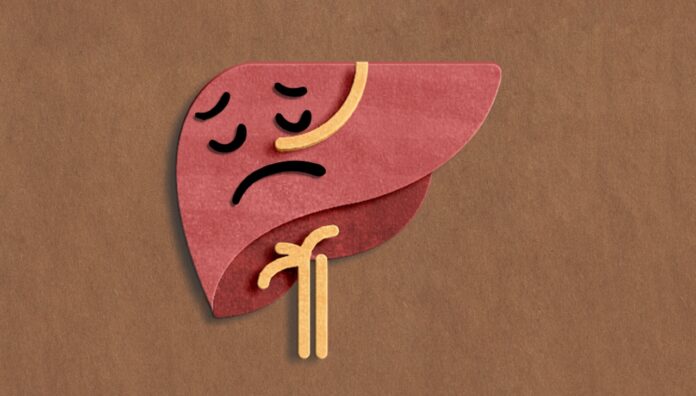After 18 reports of liver injury to June this year, including one death, the Therapeutic Goods Administration (TGA) has issued a fresh warning for patients and healthcare professionals about the potentially harmful effects of Curcuma longa (turmeric) and/or curcumin.
Curcumin is a component of Curcuma longa (turmeric) which can be isolated and used in medicinal products. It can also be isolated from other Curcuma species (i.e. Curcuma aromatica, Curcuma zanthorrhiza and Curcuma zedoaria). As a result, there is a risk of liver injury from any medicinal products containing ingredients from these Curcuma species.
By informing patients of the potential risks, pharmacists can help them make informed choices before opting to take these complementary medicines.
Turmeric has long brewed concerns
Turmeric-related hepatotoxicity has been on the radar of pharmacovigilance expert and Consultant Drug Information Pharmacist at Brisbane’s Mater Hospital, Dr Geraldine Moses FPS, for some time.

‘About a year ago, one of our patients who had been attending a liver clinic for fatty liver [disease] had an abrupt deterioration in function and went into acute multiorgan failure,’ she said. ‘He was in the intensive care unit for weeks.’
After learning the patient was taking turmeric, Dr Moses drew an immediate link through knowledge accrued from the National Library of Medicine’s Livertox site.
According to Livertox, there were initial concerns about hepatotoxic effects when turmeric-based products first hit the market.
‘Turmeric used as a flavouring agent in food and beverages is unlikely to be a problem, as the amount ingested is very low,’ she said. ‘It’s the use of pharmaceutically manufactured products containing turmeric that has been found to be risky, as the plant-derived substances are much more concentrated.’
When products with ‘better bioavailability’ – including those containing liposomal and nanoparticle curcumin – became available, reports of liver toxicity started to go through the roof.
‘[Now] turmeric is always co-formulated with black pepper because the absorption of the curcuminoids is improved in the presence of black pepper, or “piperine”,’ said Dr Moses. ‘But that then increases the risk of hepatotoxicity.’
Who is at risk?
While it’s early days in understanding how turmeric causes liver toxicity, there are some patients who should nevertheless avoid turmeric-containing medicine.
‘I’ve been advising cancer patients with liver metastases to stay far away from turmeric products. This is a popular remedy in oncology believed to have anti-cancer properties, but the liver risk may outweigh that theoretical benefit,’ said Dr Moses.
Patients with established liver disease should also avoid pharmaceutically manufactured products containing turmeric. This could include those with predisposing factors such as:
- alcohol use disorder
- a history of viral hepatitis
- autoimmune liver disease.
‘Because so little is known about the mechanism of turmeric’s potential for liver toxicity, and both hepatocellular and cholestatic mechanisms have been reported, there is little to be gained from hypothesising about what might be a safe dose,’ warned Dr Moses.
Because the liver has an enormous amount of reserve, patients can silently lose up to 90% of their liver function before experiencing symptoms of potential liver failure.
‘Luckily the liver is one of the few organs that can regenerate, so if the insult is removed quickly and the patient is clinically supported, they can usually recover,’ she said. ‘But patients need to know what signs and symptoms of liver toxicity to look out for, so they can know when to act and what to do.’
Advice pharmacists should provide patients
It’s ultimately a patient’s decision to take complementary medicines to alleviate their symptoms. However, such decisions should be made when the patient is fully informed about the risks versus the benefits.
A good place to start is by letting patients know that curcumin is a component of turmeric. ‘It’s important to make sure people understand that turmeric and curcumin are the same thing,’ said Dr Moses.
When patients purchase medicines containing turmeric and/or curcumin, she recommends advising:
- that at least one patient’s death is linked to the medicine
- there have there been numerous reports of liver toxicity
- what to look out for if this occurs.
‘You could provide a link to the TGA [warning], and follow up by saying, “While it’s not going to happen to everyone, it’s rare, but real”,’ said Dr Moses.
The Liver Foundation advises early signs of liver disease include:
- feeling more tired and weak than normal
- nausea or malaise
- weight and muscle loss
- pain or tenderness in the upper right side of the abdomen
- spider veins above the waist and/or red blotchy palms
- sleep disturbances
- loss of appetite and abdominal bloating.
Patients experiencing these symptoms should seek prompt advice from their GP. But serious signs that warrant immediate medical attention include:
- yellowing of the skin or eyes
- dark urine
- black stools
- vomiting blood.
‘If you’re jaundiced, you need to get to the hospital straight away, because it is a sign the liver is on the brink of collapse,’ said Dr Moses.
Warning labels
The TGA has said it is considering further action, including consultation on a label warning for turmeric and curcumin-containing products.
In the meantime, Dr Moses suggests pharmacists can come up with a solution of their own.
‘You could place stickers in front of all the [relevant products] on shelves, or [create] individual product labels that say, “This product has a new warning of liver toxicity – talk to your pharmacist”,’ she said.
Pharmacists could also advise patients to report adverse drug reactions with complementary medicines, no matter what type, to the TGA through:
- the Adverse Event Reporting portal
- the adverse medicines Events line (1300 134 237).
Other symptoms and interactions
Along with a risk of declining liver function, turmeric carries an established bleeding risk.
‘If people are taking another drug that increases bleeding risks, they can experience [significant] bleeds,’ said Dr Moses. ‘So pharmacists should warn people not to take these drugs if they already take anticoagulants, antiplatelets, or both.’
Other co-formulations patients should be wary of are turmeric and ashwagandha or boswellia, which are similarly linked to hepatotoxicity. Black cohosh, commonly available in pharmacies, can also cause liver impairment.
‘These products have become quite popular with a positive reputation,’ said Dr Moses. ‘I’ve heard people call them natural [paracetamol], and they may not even think they could cause adverse effects.’



 John Jones MPS, pharmacist immuniser and owner of My Community Pharmacy Shortland in Newcastle, NSW[/caption]
John Jones MPS, pharmacist immuniser and owner of My Community Pharmacy Shortland in Newcastle, NSW[/caption]


 Debbie Rigby FPS explaining how to correctly use different inhaler devices[/caption]
Debbie Rigby FPS explaining how to correctly use different inhaler devices[/caption]




 Professor Sepehr Shakib[/caption]
Professor Sepehr Shakib[/caption]

 Lee McLennan MPS[/caption]
Lee McLennan MPS[/caption]
 Dr Natalie Soulsby FPS, Adv Prac Pharm[/caption]
Dr Natalie Soulsby FPS, Adv Prac Pharm[/caption]
 Joanne Gross MPS[/caption]
Joanne Gross MPS[/caption]








